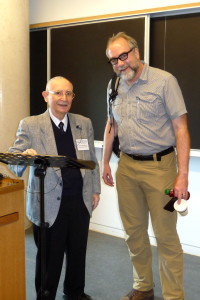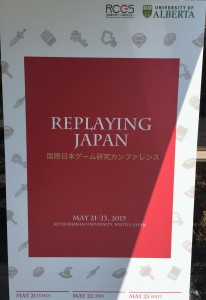“Visualizing Philosopher and Topic Frequency Data Gathered from Named Entity Recognition Tools”
Schenk, Kevin; Simpson, John; Rockwell, Geoffrey; Chartier, Ryan; and Montague, John
“Data Stewardship in the Digital Humanities”
Sapach, Sonja Christina; Rockwell, Geoffrey; and Catherine Middleton
“Characteristic Curve: Reinterpreting Early Analytics”
Rockwell, Geoffrey and Stéfan Sinclair
“#GamerGate: Distant Reading Games Discourse”
Andrea Budac, Geoffrey Rockwell, Ryan Chartier, Todd Suomela and Sean Gouglas
“Wicking Ideas”
Budac, Andrea; Rockwell, Geoffrey; Palmer, Zachary; Budac, Robert; and Stan Ruecker
Digital Demonstration: “Voyant Tools 2.0: The New, The Neat and the Gnarly”
Sinclair, Stéfan; Rockwell, Geoffrey; Sinatra, Michael; and Marcello Vitali Rosati
Digital Demonstration: “TAPoR 3.0”
Rodriguez-Arenas, Omar Isidro; Schenk, Kevin; Radzikowska, Milena; Ranaweera, Kamal; Sinclair, Stéfan; McKellar, Mark; and Geoffrey Rockwell
Digital Demonstration: “Game of Writing (GWrit)”
McKellar, Mark Pearse; Rockwell, Geoffrey; Ranaweera, Kamal; In, Aiden; Ru’Aini, Melania; Graves, Roger; Graves, Heather; and Omar Rodriguez-Arenas,



